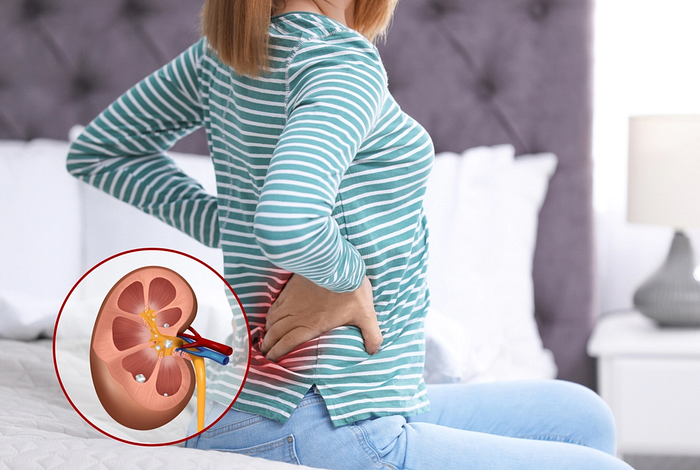Introduction:
Kidney stones, though small in size, can cause significant pain and discomfort. They are solid deposits that form in the kidneys when substances like calcium, oxalate, and uric acid become concentrated in the urine. Understanding what kidney stones are, their causes, symptoms, and available treatments is crucial for managing this common condition.

What Are Kidney Stones?
Kidney stones are hard deposits made of minerals and salts that form inside your kidneys. They can vary in size, ranging from as small as a grain of sand to as large as a golf ball. These stones can either remain in the kidney or travel down the urinary tract, causing pain and complications.
Causes of Kidney Stones:
Several factors contribute to the formation of kidney stones:
1. Dehydration: Insufficient water intake can lead to concentrated urine, increasing the risk of stone formation.
2. Dietary Factors: Consuming foods high in oxalate, sodium, and protein can promote stone formation.
3. Genetics: A family history of kidney stones increases your susceptibility to developing them.
4. Certain Medical Conditions: Conditions like obesity, urinary tract infections, and digestive disorders can increase the risk of kidney stones.
5. Medications: Some medications, such as diuretics and calcium-based antacids, can contribute to stone formation.
Symptoms of Kidney Stones:
The symptoms of kidney stones can vary depending on their size and location within the urinary tract. Common symptoms include:
1. Severe Pain : The most prominent symptom is intense pain in the back, side, abdomen, or groin. This pain can come in waves and may fluctuate in intensity.
2. Urinary Symptoms : Painful or frequent urination, blood in the urine (hematuria), and cloudy or foul-smelling urine are common.
3. Nausea and Vomiting : Some individuals may experience nausea and vomiting as a result of the pain.
4. Fever and Chills : In cases of infection, fever and chills may occur.
Diagnosis and Treatment:
If you suspect you have kidney stones, it is essential to seek medical attention promptly. A healthcare provider will typically perform a combination of imaging tests, such as ultrasound, CT scans, or X-rays, to diagnose kidney stones accurately.
Treatment options for kidney stones depend on their size, composition, and location. Small stones may pass through the urinary tract naturally with increased fluid intake and pain management. However, larger stones or those causing severe symptoms may require intervention.
1. Medications : Pain relievers and medications to help relax the muscles of the urinary tract can alleviate discomfort and facilitate stone passage.
2. Lithotripsy : Extracorporeal shock wave lithotripsy (ESWL) uses shock waves to break large stones into smaller pieces that can be passed more easily.
3. Surgical Removal : In some cases, surgical procedures like ureteroscopy or percutaneous nephrolithotomy may be necessary to remove stubborn stones.
4. Preventive Measures : Lifestyle changes, such as staying hydrated, adopting a balanced diet, and managing underlying medical conditions, can help prevent the recurrence of kidney stones.
Conclusion:
Kidney stones are a common and often painful condition that can affect anyone, regardless of age or gender. Understanding the causes, symptoms, and treatment options for kidney stones is essential for prompt diagnosis and effective management. By making lifestyle changes and seeking medical attention when needed, individuals can reduce their risk of kidney stones and enjoy better urinary tract health.
Comments
Post a Comment